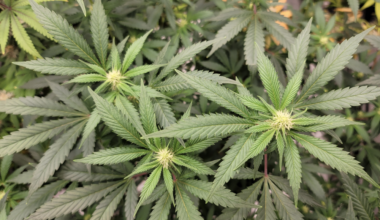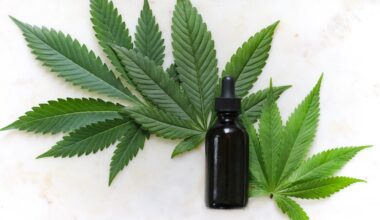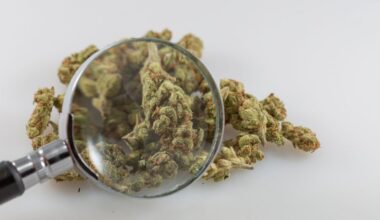Two GOP congressmen on Tuesday testified before a key House committee in favor of amendments to promote psychedelics research for military service members in a large-scale defense bill.
Reps. Matt Gaetz (R-FL) and Dan Crenshaw (R-TX) spoke about their measures at a House Rules Committee meeting, where members are determining which of the nearly 1,200 filed amendments to the National Defense Authorization Act (NDAA) will be made in order for floor consideration.
Gaetz’s measure would build on an existing provision from Rep. Seth Moulton (D-MA) that was already attached to the must-pass bill in the House Armed Services Committee. Moulton’s proposal calls for a Department of Defense (DOD) study into marijuana as an alternative to opioids for service members with certain health conditions. Gaetz filed an amendment to expand that to include psilocybin and MDMA.
The congressman said that he introduced the measure “because I’ve seen extensive evidence regarding the ability of psilocybin and MDMA to be very helpful to veterans going through PTSD and other forms of traumatic brain injury.”
Rep. Alexandria Ocasio-Cortez (D-NY) has a virtually identical but separate amendment to NDAA, which Gaetz acknowledged during the Rules meeting. He said that he “did not hear back” after seeking a cosponsorship from her office on his proposal and noted he was surprised to see that she later filed a new version on her own.
That said, the congressman said he doesn’t care who gets the credit for it. “I would just like to see those medical opportunities and those research opportunities available for many veterans,” he said.
—
Marijuana Moment is tracking more than 1,500 cannabis, psychedelics and drug policy bills in state legislatures and Congress this year. Patreon supporters pledging at least $25/month get access to our interactive maps, charts and hearing calendar so they don’t miss any developments.![]()
Learn more about our marijuana bill tracker and become a supporter on Patreon to get access.
—
Meanwhile, Crenshaw’s amendment would allow the secretary of defense to approve grants for research into the therapeutic potential of certain psychedelics such as MDMA, psilocybin, ibogaine and 5–MeO–DMT for active duty military members with PTSD.
Crenshaw, a veteran himself, said that there have been significant advancements in therapies for veterans who suffer from mental health conditions, but “we can’t allow that celebration to turn into complacency” and “we must push forward.”
To that end, he said that his amendment to facilitate studies into the medical potential of psychedelics will help pave the path toward a “new and innovative way to treat our service members, and give them a chance to continue to serve while taking part in treatment that can help them function not just in uniform, but in life.”
The Rules Committee did not make an earlier version of that measure in order for floor consideration as part of last year’s NDAA, and the text was not revised since then.
“We had this opportunity a year ago to pass this into law, but we did not. It was not made an order,” he said. “We cannot lose another year with suicides rates the way they are. We should not be forcing our service members or veterans to use nonprofits and go down to Mexico to get this treatment to save their lives. We should be looking into it, at least, ourselves.”
“This amendment only starts pilot programs and only starts the studies to do so,” he continued. “It’s a small start, but it’s a necessary one. We can’t lose another year in doing so.”
The congressman emphasized that the point of the measure wasn’t to decriminalize psychedelics or have service members experimenting with the substances on their own. Rather, it’s a modest step to explore a treatment option that numerous veterans have told him could be life-changing.
The psychedelics amendment are just some of nearly a dozen drug policy reform measures that are being taken up in Rules on Tuesday. Other amendments touch on policies such as VA home loan benefits for veterans who use medical cannabis, allowing VA doctors to fill out recommendations for medical marijuana, protecting banks that works with state-legal cannabis businesses and more.
Rep. Ed Perlmutter (D-CO), sponsor of the Secure and Fair Enforcement (SAFE) Banking Act, spoke in favor of his proposal to provide those safeguards to financial institutions during the Rules meeting. He also said that his office has received a Congressional Budget Office (CBO) analysis that found the measure would save taxpayer dollars over time.
Meanwhile, a bipartisan bill to provide military veterans with access to medical marijuana was reintroduced in Congress last month, with Reps. Earl Blumenauer (D-OR) and Rep. Brian Mast (R-FL) as the chief sponsors.
The reform, which is identical to committee-approved versions from past years and also cosponsored by Cannabis Caucus co-chair Rep. Dave Joyce (R-OH), was previously pursued through the appropriations process as an amendment.
Separately, Crenshaw, whose legislative record up until late has largely been unfriendly to drug policy reform matters, also moderated a conversation with a top psychedelics reform advocate last year. The congressman said that a veteran’s account of psychedelics therapy with MDMA “sounds amazing.”
Photo elements courtesy of carlosemmaskype and Apollo.
Medical Disclaimer:
The information provided in these blog posts is intended for general informational and educational purposes only. It is not a substitute for professional medical advice, diagnosis, or treatment. Always seek the advice of your physician or other qualified healthcare provider with any questions you may have regarding a medical condition. The use of any information provided in these blog posts is solely at your own risk. The authors and the website do not recommend or endorse any specific products, treatments, or procedures mentioned. Reliance on any information in these blog posts is solely at your own discretion.







